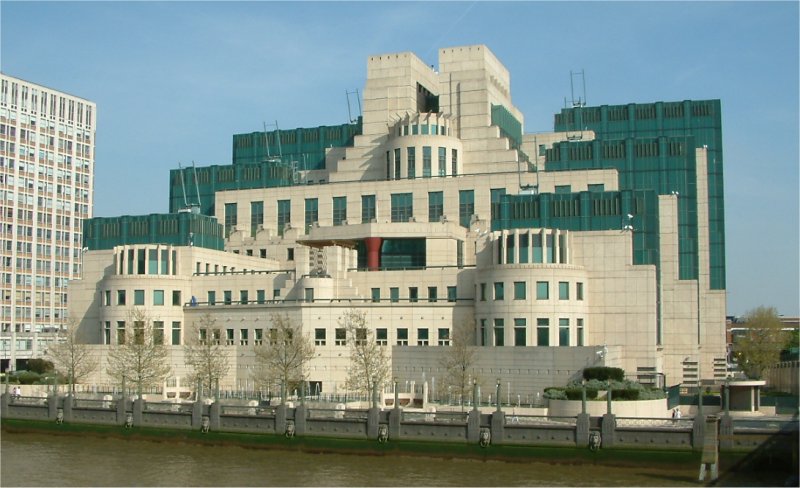Counter-terrorism overseas: Adebolajo report makes uncomfortable reading for MI6 – Marina Wheeler QC
14 November 2016
 Oversight of the Intelligence Services is a matter of enormous public importance, as counter-terrorism powers are enhanced to combat a pernicious and persistent threat.
Oversight of the Intelligence Services is a matter of enormous public importance, as counter-terrorism powers are enhanced to combat a pernicious and persistent threat.
A recent Report by the Intelligence Services Commissioner, Sir Mark Waller, assisted by Oliver Sanders of these Chambers, dispels some misconceptions about contact between the intelligence services and Michael Adebolajo, one of 2 men convicted of murdering Fusilier Lee Rigby[1]. It also shines a light on how HMG applies its policy on the treatment of detainees held overseas – in Adebolajo’s case, by a Kenyan partner counter-terrorism unit in 2010. Not all of the Report’s findings make comfortable reading for the Intelligence Services.
HMG’s policy was, and remains, never to assist, condone, encourage, solicit or participate in any form of mistreatment of detainees. The 2010 Consolidated Guidance to Intelligence Officers on the Detention and Interviewing of Detainees Overseas[2], is intended to guide UK personnel who work with overseas agencies where, by definition, they are unlikely to be in total control of the situation in which detainees are held.
The Guidance requires UK personnel to consider whether a detainee may be or may have been mistreated, or subject to unlawful detention, on each occasion they seek to pass or receive intelligence relating to the case, or where they solicit detention by a third party. It also sets out the process to be followed where officers assess there is a risk of torture or cruel and inhuman or degrading treatment (CIDT).
One of the Report’s key finding relates to Adebolajo’s claims, widely reported in the media, that he was tortured in Kenya, and the related claims of others that he was the victim of a conspiracy by MI6 and MI5 to engineer his arrest and mistreatment, then “rescue” him so as to recruit him as an agent. The torture claims are rejected, and the alleged conspiracy is dismissed as “fanciful, implausible nonsense”.
The Report also disavows the view, expressed by the ISC, that MI6’s response to Adebolajo’s arrest was “passive” and “deeply unsatisfactory”. On the contrary, the disruption of Adebolajo’s travel to Somalia and return to the UK is considered “an effective outcome which served the national security interests of the UK”. The Report observes that had Adebolajo travelled on to join and train with Al-Shabaab, as he was planning to, the outcome (meaning, one assumes, his Islamist-inspired act(s) of terrorism) might have been even worse[3].
However, the Report does identify serious procedural failings in the application of the Consolidated Guidance.
HMG did not solicit Adebolajo’s detention, but it received information from the Kenyan authorities, which brought the case within the scope of the Guidance. In any event, the Report finds, as joint arrest, detention and deportation operations were routine business, HMG should have considered the relevant risks and whether to obtain specific assurances relating to Adebolajo’s detention.
The failure to conduct a contemporaneous investigation into Adebolajo’s allegations of mistreatment was also serious, notwithstanding it would have concluded that they were neither credible nor reliable.
That said, the Report notes that this was an “atypical case which emerged in the middle of a very busy period ” and Sir Mark’s “more general experience”, is that the Guidance “is invariably taken very seriously and followed assiduously” and, indeed, is “embedded in the culture” of the relevant government bodies.
By way of conclusion, the Report recommends that HMG reviews the Consolidated Guidance, particularly its application to on-going partnerships and intelligence–sharing relationships, as opposed to individual cases. Clarification is also required as to its application where there is a risk of unlawful arrest or detention, or procedural unfairness.
The Report commends the work of the Intelligence Services and acknowledges tension between operations which are necessarily conducted in secret, and the requirement for effective oversight. However it singles out MI6’s approach to the inquiry as displaying a mind-set which was defensive, dismissive and focused on rebuttal rather than engagement:
“I consider that the intelligence services have a duty to work with persons reporting on them such as myself and adopt a constructive and expansive approach to their investigations which answers the spirit, as well as the letter, of questions and which seeks to illuminate the surrounding landscape and other possible lines of inquiry. I believe [M16] takes such an approach when I carry out my inspections, but that it has failed to act in the same way when engaging with the ISC inquiry and with my review”.
Although it may not be universally welcomed, the Report is admirably clear and constructive. It finds no evidence of complicity in any mistreatment of Adebolajo, but recommends that MI6 improve its engagement with oversight investigations. As the Report notes, “demonstrably effective oversight mechanisms are essential to trust and confidence in the services themselves”. They also encourage improvement, and better performance of the difficult but vital functions with which the Intelligence Services are entrusted.
[1] In November 2014, a Report by the Intelligence and Security Committee of Parliament (“ISC”) concluded that the Intelligence Services could not have foreseen or prevented Lee Rigby’s murder, but expressed concerns about their response to Mr Adebolajo’s arrest and detention in Kenya and to his allegations of mistreatment.
[2] Its full title is Consolidated Guidance to Intelligence Officers and Service Personnel on the Detention and Interviewing of Detainees Overseas and on the Passing and Receipt of Intelligence Relating to Detainees (dated 6 July 2010).
[3] Recent attacks by Al-Shabaab include the atrocities at the Westgate Shopping Mall, Nairobi in September 2013.


 This blog is run by
This blog is run by
Considering that is just a report we have to consider that there can be some manipulation in it!